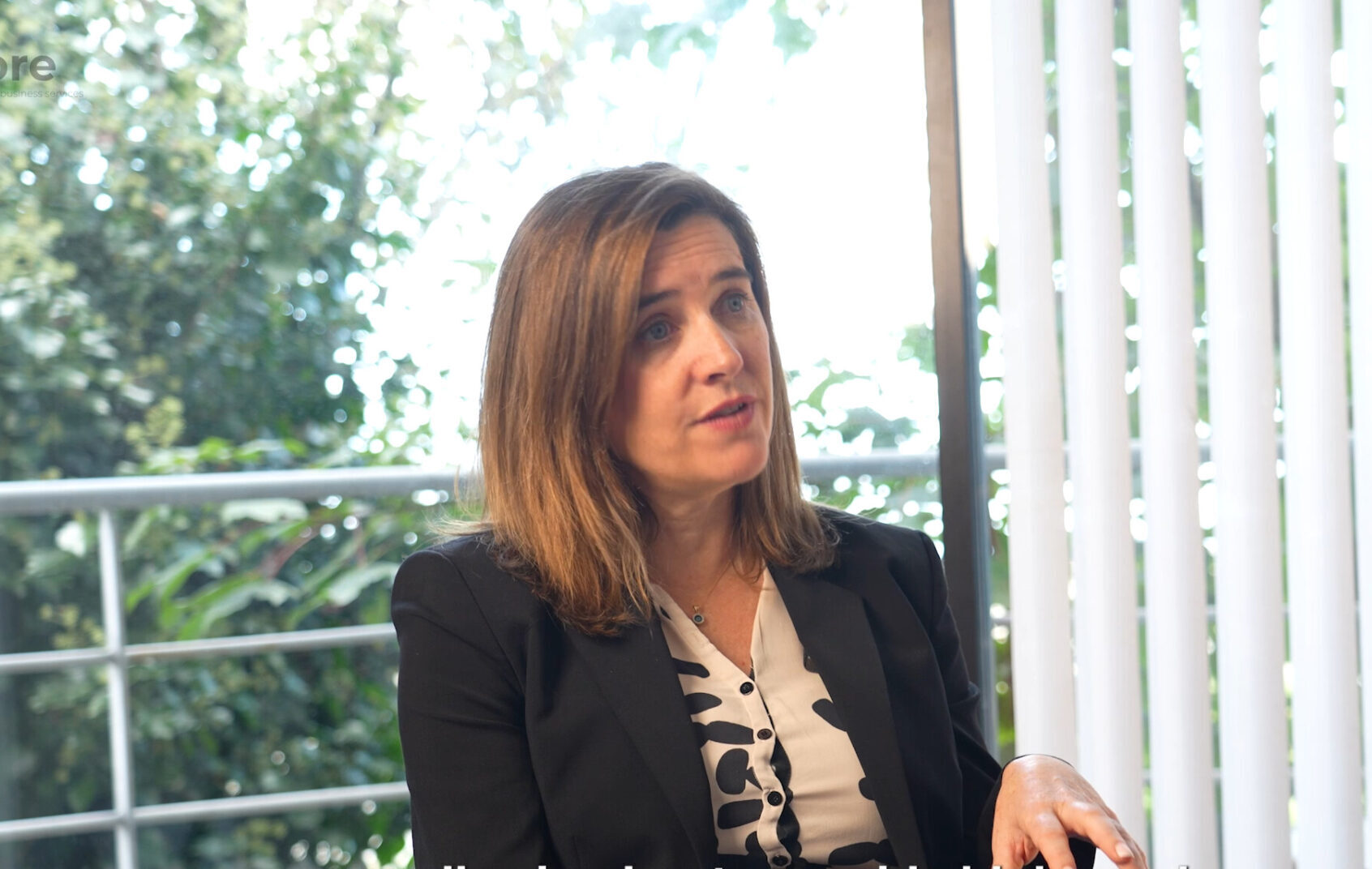What is a Form 11?
A Form 11 (or an Income Tax return in Ireland) is a self-assessment tax return for self-employed individuals or individuals with additional income, such as rental or investment income. The form provides information on an individual’s income, expenses, and tax credits. It calculates the amount of tax owed to the Irish Revenue Commissioners annually within the filing deadlines.
This guide explains what you need to do ahead of the 2025 Form 11 Income Tax return deadline. If you need help or have additional questions about your tax obligations, reach out to our team for more support. You should always seek advice from your accountant or a professional.
When is the
Form 11 due?
Who needs to file a
Form 11?
-
Sole Traders
Sole traders are self-employed individuals. Their taxable income is calculated as the profit from their turnover for the year after deducting expenses. Normally their taxes will be approximately 40% or 50% of the profits earned in the business.
-
Proprietary directors
Proprietary directors are directors of a limited company who hold more than 15% of the share capital of the company. They will always need to make an Income Tax return regardless of whether they have income or not. Usually, a proprietary director will be included on the payroll of the business, but this is not mandatory. Any salary income earned from the company will be taxed at source.
-
Non-proprietary directors
Non-proprietary directors are directors of a limited company who hold less than 15% of the share capital of the company. Where a non-proprietary director only has PAYE income (i.e. salary from the company), they will not need to file a Form 11 Income Tax return. If, however, they also have other sources of income (i.e. Dividends or rental income, etc.) they will need to file the Income Tax return.
-
Landlords
Any individual or couple who own and rent out a rental property are known as landlords. Landlords are required to make an Income Tax return to Revenue on an annual basis and are taxed on the rental profits made after calculating their total rental income received for a year, less any allowable expenses.
Where is the Form on ROS?
We recommend that business owners file the Form 11 electronically through Revenue’s Online Service for an efficient filing process.
You will need to register for ROS, where you will be provided with access codes to log into the system.
This can normally take a few days to set up, so remember not to leave this part until it’s too late, as the onus to file always falls on the taxpayer.
You can file a Form 11 return through ROS, by following these steps:
- Sign in to ROS
- Select the ‘My Services’ section
- Select the ‘File a Return’ section
- Select the return type of ‘Income Tax’ and ‘Form 11’.
If you need reliable and professional support filing your Income Tax Return, reach out to our team to find out how we can help.
What happens once you are
registered for ROS?
01.
File your Income Tax return
02.
Pay your tax bill
03.
Upload documentation
What information do I need for my Tax Return?
A checklist of information required:
- Personal Details – Name, Date of Birth and PPS number (for both yourself and your spouse)
- Details of PAYE (employment income) or pension income received – This information can be obtained directly from either your employer via payroll or via your Revenue MyAccount login page. The main details you will need are the name of the employer, tax number of the employer, Gross Pay, Tax Paid and USC Paid
- Details of any Social Welfare received – This information can be obtained from your Social Welfare office and is available via your Revenue MyAccount login page. Note that not all Social Welfare payments are taxable, and you should talk to a professional about your personal circumstances.
- Details of income made from a Trade/Profession/Vocation – For this type of income, you will normally need a set of accounts completed to show a breakdown of your total income received and tax-deductible expenses incurred during the relevant year. On ROS, you will need these details to complete an accounts extract for each trade or profession. It is important to note that farming is classified as a “trade” in Ireland and would come under this section
- Details of capital allowances – Capital allowances allow businesses to claim deductions for certain types of assets and premises they purchase. These deductions are typically based on the net cost of the asset or premises and vary by asset type. For instance, plant and machinery qualify for a 12.5% deduction over eight years, while most industrial buildings qualify for a 4% deduction over 25 years.
- Details of losses (both carried forward or current) – Where a business incurs losses in their trade, these can be offset against other income for the year or carried forward against future profits of the same trade
- Details of Rental Income received and related expenses – Total Rental Income for the year will need to be calculated, and any allowable expenses deducted to work out what rental profit (if any) is taxable. It is important to note that any rental losses incurred can only be carried forward against future rental profits and can’t be offset against your other income in a given year (like can be done where the income relates to a trade)
- Details of other income received during the year – This could include details of any foreign income received, any Dividend income received or any exempt income received (i.e. Artists exemption, rent-a-room relief, forestry or woodlands income). Calculate dividend tax carefully if you have any Dividend income, as it may affect your overall tax liability.
- Details of health expenses incurred (You can receive tax back of 20% on qualifying health expenses)
- Pension payments – You will also need to confirm what pension payments you made during the year, as tax relief may be available for these payments as well, depending on the type of pension and amounts paid;
- Confirmation of whether they fall under the high earner’s restriction (will usually be a factor where your income exceeds €125,000 and you make use of tax reliefs against same)
- Details of any capital gains (Note this is a different tax heading; however, it is also returned on a panel of the Form 11)
- Confirmation of tax credits being claimed – Generally, you are entitled to tax credits, and these are recorded on your tax credit certificate, which is available from Revenue. Sometimes, you may be entitled to extra tax credits, so it is important to check what is recorded on your tax credit certificate vs. what is being claimed
How to complete your Form 11 online?
Pre-populated returns on ROS
A prepopulated return will usually contain the following information:
- Name, address, and PPS number for individual and spouse of jointly assessed
- Details of Gross pay, tax paid and Universal Social Charge reported by your employer
- Details of pension and social welfare benefit payments from the Department of Social Protection (DSP)
- Details of any health expenses which were uploaded by customers on the RevApp during the year
- Relevant Contracts Tax (RCT) data on gross payments and credit for those involved in the construction sector.
It is always important to check that the details held by Revenue are the same as per your payslips and Social Welfare receipts.
To complete the Form 11 return, you will then need to enter the following additional information, which Revenue wouldn’t have on file:
- Confirmation of tax residency (i.e. Did you live and work in Ireland during the tax year, or were you based outside Ireland and deemed non-resident?)
- Details of any rental income received (if applicable)
- Details of any foreign income received (if applicable)
- Details of any income received from fees, covenants, and dividend distributions (if applicable)
- Details of any exempt income received (i.e. Artists exemption, rent-a-room relief, forestry or woodlands income)
- Details of health expenses not previously provided to Revenue
- Any other relevant information not held on account by Revenue
Helpsheet –
How to calculate your tax liability in Ireland
The main steps involved are as follows:
- Calculation of Total Income – This will add up the total income received during the year from all sources (i.e employment income, trade income, social welfare income, rental income, etc)
- Deduction of capital allowances and losses – Any capital allowances or losses which can reduce the taxable income amount will then be deducted. This will then let you know what your taxable income figure is
- Calculation of PAYE tax payable – Your taxable income figure is then checked to see how much falls under the lower 20% rate of tax and how much falls under the 40% higher tax rate. This is known as the tax bands and this information is available on your tax credit certificate.
- Deduction of tax credits – You can now deduct the tax credits you are entitled to for the year which will reduce your tax liability
- Calculation of PRSI and USC payable – Your total income will also be the basis for calculating what PRSI and USC liability is due on your income for the period. PRSI is chargeable at 4% of your income, while USC is charged at different rates depending on the level of your income
- Deduction of PAYE and USC already paid – Having now calculated your overall Income Tax liability, you may deduct any tax or USC already paid through the PAYE system
- Final tax liability or refund – This will let you know what your final Income Tax liability or refund is for the year
How to pay your tax bill in Ireland
Your income tax liability can be paid online through ROS using a ROS debit instruction, or by a credit or debit card. Alternatively, you can send a cheque or bank draft directly to Revenue Commissioners, with details of taxes to be paid and your PPS number. However, this method is slowly being phased out in preference for online payments.
Where you are due a refund for the year, Revenue will refund the full amount into your nominated bank account.
What happens after submission of your Form 11 tax return?
Once you have filed your tax return on ROS, you will always receive a notice of assessment (NOA) from the Revenue Commissioners outlining the tax payable (or repayable) for the year within a matter of days. This should always be verified against the return filed to ensure it matches.
Please be aware that Revenue Commissioners can request additional supporting documentation and please note that you are required to keep such documentation and records for six years.
What happens if you cannot pay the full tax bill?
Where you are unable to pay your Income tax bill, you should make contact with Revenue (preferably by phone or My Enquiries) to discuss your options.
Revenue does allow an option to pay in instalments through a Phased Payment Arrangement (PPA), however, an application will need to be completed to avail of this and a sizeable down payment (usually 30-40% of the total liability) will need to be made once accepted.
It is important to contact Revenue as early as possible if you have payment troubles so that a plan can be put in place. If you pay your tax late, you will be charged interest and interest will also be included in all PPA agreements.
Where tax bills are not paid and no effort is made by the taxpayer, Revenue may take enforcement action to collect the outstanding tax.
Enforcement action can include:
- Referral to the Revenue Sheriff
- Referral to an external solicitor
- Freeze of bank accounts
- Liquidation or bankruptcy
If you need further expert guidance, our tax consultant is available to help you navigate these challenges.
In summary…
In this guide, we outlined what is expected of you when you file your Income Tax return and answered your FAQ about the tax return process.
At Kinore, we understand that not everyone has the financial expertise or time or resources to complete tax returns on their own. So, we offer tailored tax return services that suit your needs and business size.
Talk to our Client Services about your business and we will discuss our services with you to ensure they meet your expectations.


